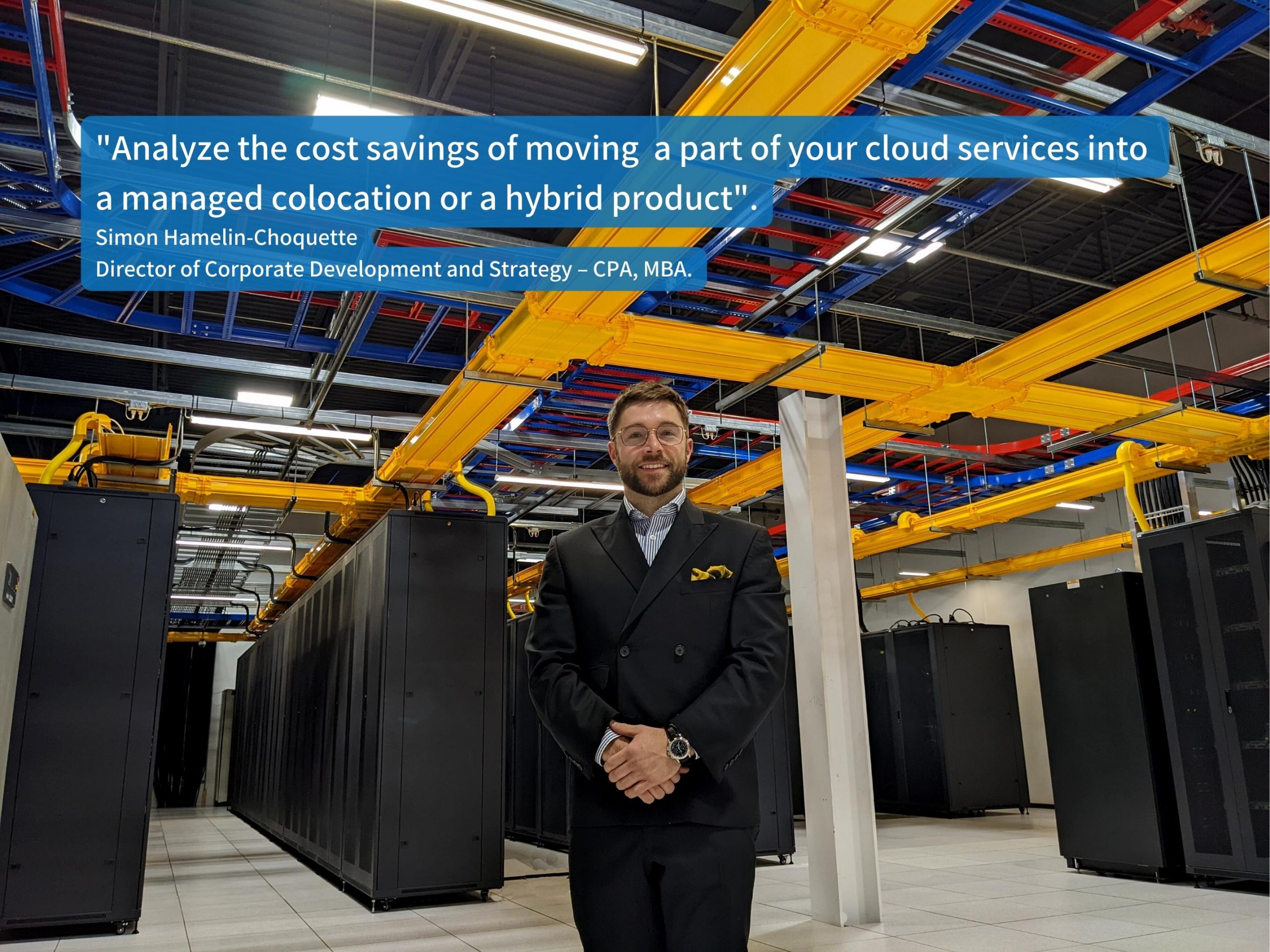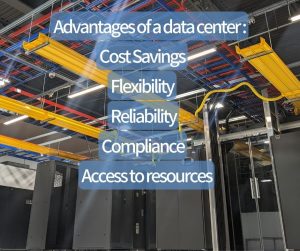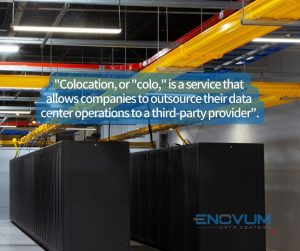Director of Corporate Development and Strategy – CPA, MBA
After years of strong growth and consolidation in the data centre industry, the question has arisen of how it will be affected by current economic issues, such as inflation and expected recessions.
Political instability in Europe and Asia, the weakening of global supply chains and uncertainties related to infectious diseases are all factors that affect the general economic horizon in 2023. The general demand for data centres’ services seems to be constantly growing. It is also predictable. What is less clear is the distribution of this demand between different players: the Cloud, colocation and the “DIY” solution. The best players are succeeding by offering hybrid services.
We like cloud computing, aka the “Cloud”, for its flexibility and tools, but we dread the amount it costs, an often unpleasant surprise at the end of each month. We like colocation for its low cost but fear its rigidity and service times. We want “DIY” for proximity and service, but we dread the need for capital expenditure (“CAPEX”) and specialized human capital management.
Hybridization of solutions:
The winners of the next few years will be those who have been able to diversify their IT services into different products while limiting the Cloud’s costs. These costs could be lowered by linking them to colocation services and thereby leveraging internal capacities for larger companies. Your operating risk will then be more diversified. You can also favour independent solution providers who can accommodate you with tailor-made solutions.
Data centre projects and expansions will take longer and need to be structured differently in 2023. Wait times for some equipment have increased exponentially and are no longer guaranteed.
Operators must be flexible regarding deadlines and brands and models to complete their projects. Many expect vertical integration to increase. Planned mergers and acquisitions are moving towards supply chain equipment and software. Many anticipate a reduction in the size of transactions to manage risk and reflect the new level of capital available in the market. In the United States, electrical capacity is increasingly becoming an issue. Delays are increasing, and available electrical capacity is decreasing. The number of construction phases is also growing in number and deadlines for clients are no longer guaranteed.
Rising costs:
The rise in construction costs, specialized salaries, data centre equipment (electrical and telecommunications) as well as the increase in interest rates will undoubtedly have a negative financial impact on operators of technological infrastructures. For large banners that are owned by private equities, it is a safe bet that additional costs will be passed on to customers. Private equities might want to maintain their return on investment.
The price increase on the customer’s end could be 10 to 20 percent in non-competitive markets, and 5 to 10 percent in competitive markets. These increases are already being felt. In the medium term, it is possible there may also be a drop in the level of service for customers who have kept their prices.
Our advice to clients:
Protect yourself from price increases by using hybrid services or by renewing over the long term, hastily, if necessary, for contracts with less than 18 months remaining.
–Latency vs security: a New York client with strong IT needs would benefit from analyzing how installing part of its technological infrastructure in Quebec would impact its costs, especially with the current exchange rate. Moving to Quebec could save the client money.
–Latency vs cost: a New York client with strong IT needs would benefit from analyzing how installing part of its technological infrastructure in Quebec would impact their costs, especially with the current exchange rate. Moving to Quebec could save the client money.
–Take a close look at your cloud bills, and think about whether your business really needs the over-the-top cloud services you’re subscribed to. Could you save money by switching to a managed colocation or hybrid product? Analyzing your cloud usage and making the necessary changes could be a great way to cut costs.
About us: Enovum Data Centres: Enovum Data Centres builds and manages mission-critical digital infrastructure, powered by renewable hydroelectricity in its Montreal flagship facility. From single cabinets to hyperscalers, Enovum is vertically integrated to deliver speed, connectivity options and quality with a robust infrastructure. Enovum is transparent: we provide live monitoring of your environment within your space. Enovum has access to all major carriers locally with multiple redundant dark fibre paths and a 100% carrier-neutral location.






